Intro
Understand kidney health with blood work tests, including GFR, creatinine, and urea levels, to assess kidney function, detect kidney disease, and monitor renal health, ensuring timely medical intervention and optimal treatment.
The kidneys play a vital role in maintaining the body's overall health, filtering waste products, and regulating various bodily functions. Monitoring kidney function through blood work tests is essential to diagnose and manage kidney-related disorders. In this article, we will delve into the world of kidney function blood work tests, exploring their importance, types, and interpretations.
Kidney function tests are crucial for detecting kidney damage or disease, which can be caused by various factors such as diabetes, high blood pressure, and family history. Early detection and diagnosis enable healthcare providers to initiate timely treatment, slowing disease progression and preventing complications. Moreover, kidney function tests help monitor the effectiveness of treatments and adjustments to medications. With the increasing prevalence of kidney disease, it is essential to understand the significance of kidney function blood work tests and how they contribute to maintaining optimal kidney health.
The kidneys perform several critical functions, including filtering waste products, regulating electrolyte levels, and producing hormones that control blood pressure and red blood cell production. Blood work tests can assess various aspects of kidney function, providing valuable insights into the kidneys' overall health. By analyzing blood test results, healthcare providers can identify potential issues, such as kidney damage, disease, or infection, and develop personalized treatment plans. Additionally, kidney function tests can help diagnose other conditions that may affect kidney function, such as liver disease or certain cancers.
Kidney Function Tests
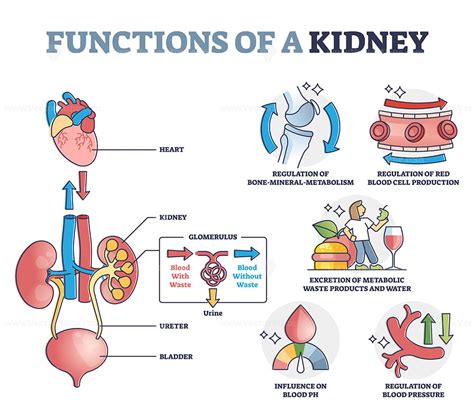
Kidney function tests typically involve a combination of blood and urine tests. Blood tests measure various substances, such as waste products, electrolytes, and proteins, to assess kidney function. The most common kidney function tests include:
- Serum creatinine: measures the level of creatinine, a waste product, in the blood
- Blood urea nitrogen (BUN): measures the level of urea, a waste product, in the blood
- Electrolyte panel: measures the levels of essential electrolytes, such as sodium, potassium, and chloride
- Glomerular filtration rate (GFR): estimates the kidneys' filtering capacity
Types of Kidney Function Tests
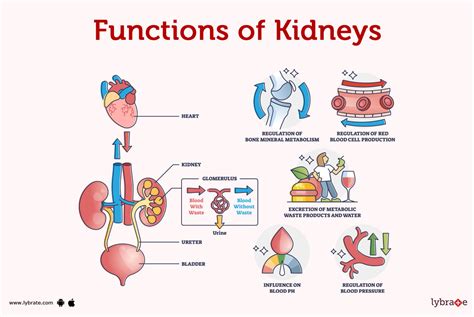
There are several types of kidney function tests, each assessing different aspects of kidney health. These include:
- Serum creatinine test: measures the level of creatinine in the blood to estimate kidney function
- Cystatin C test: measures the level of cystatin C, a protein produced by all cells, to estimate kidney function
- Urine protein test: measures the level of protein in the urine to detect kidney damage
- Urine albumin test: measures the level of albumin, a type of protein, in the urine to detect kidney damage
Interpreting Kidney Function Test Results
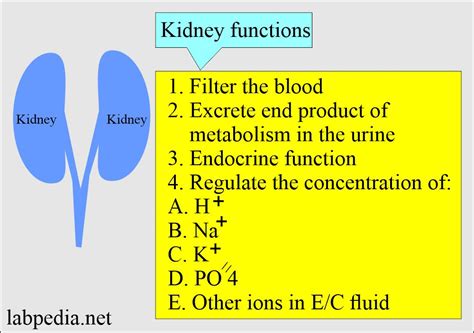
Interpreting kidney function test results requires careful consideration of various factors, including the individual's age, sex, and medical history. Abnormal test results may indicate kidney damage or disease, while normal results may indicate optimal kidney function. Healthcare providers use kidney function test results to:
- Diagnose kidney disease or damage
- Monitor the progression of kidney disease
- Adjust treatment plans and medications
- Assess the effectiveness of treatments
Understanding Kidney Function Test Results
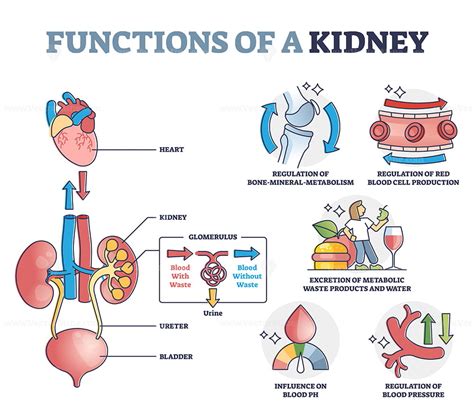
Understanding kidney function test results can be complex, but it is essential to grasp the basics. Here are some key points to consider:
- Elevated serum creatinine levels may indicate kidney damage or disease
- Elevated BUN levels may indicate kidney damage or disease
- Abnormal electrolyte levels may indicate kidney damage or disease
- Low GFR values may indicate kidney damage or disease
Kidney Disease Diagnosis and Treatment
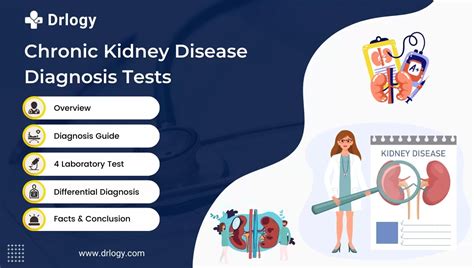
Kidney disease diagnosis and treatment involve a comprehensive approach, incorporating lifestyle modifications, medications, and other interventions. Healthcare providers use kidney function test results to develop personalized treatment plans, which may include:
- Medications to control blood pressure and slow disease progression
- Lifestyle modifications, such as dietary changes and exercise
- Dialysis or kidney transplantation in advanced cases
Kidney Disease Prevention and Management

Kidney disease prevention and management involve adopting healthy lifestyle habits and addressing underlying medical conditions. Here are some tips for preventing and managing kidney disease:
- Maintain a healthy blood pressure
- Monitor and manage blood sugar levels
- Stay hydrated and limit protein intake
- Avoid smoking and excessive alcohol consumption
Common Kidney Function Test Abnormalities
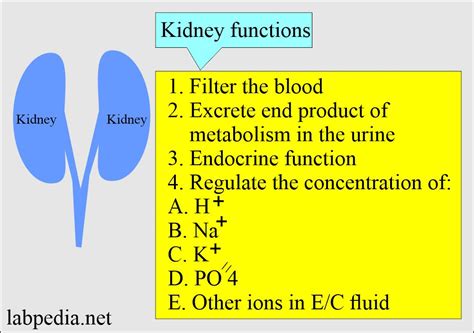
Common kidney function test abnormalities may indicate kidney damage or disease. Here are some examples:
- Elevated serum creatinine levels: may indicate kidney damage or disease
- Elevated BUN levels: may indicate kidney damage or disease
- Abnormal electrolyte levels: may indicate kidney damage or disease
- Low GFR values: may indicate kidney damage or disease
Addressing Kidney Function Test Abnormalities
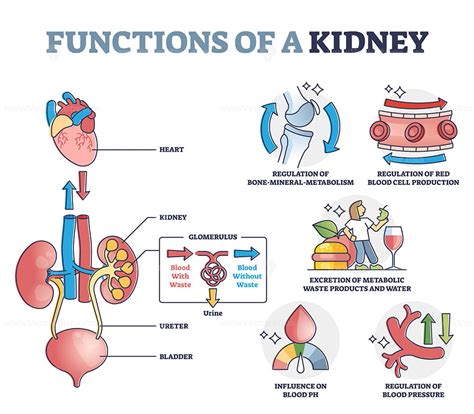
Addressing kidney function test abnormalities requires prompt medical attention and a comprehensive treatment plan. Healthcare providers may recommend:
- Repeat testing to confirm abnormal results
- Imaging studies, such as ultrasound or CT scans, to assess kidney damage
- Medications to control underlying medical conditions
- Lifestyle modifications to slow disease progression
What are the common symptoms of kidney disease?
+Common symptoms of kidney disease include fatigue, swelling, and changes in urine output. However, many individuals with kidney disease may not experience noticeable symptoms until the disease has progressed.
How often should I get kidney function tests?
+The frequency of kidney function tests depends on individual factors, such as medical history and underlying conditions. Healthcare providers typically recommend regular testing for individuals with kidney disease or those at risk of developing kidney disease.
Can kidney disease be prevented?
+While some cases of kidney disease may not be preventable, adopting healthy lifestyle habits and addressing underlying medical conditions can help reduce the risk of developing kidney disease. Maintaining a healthy blood pressure, monitoring blood sugar levels, and staying hydrated are essential for preventing kidney disease.
In summary, kidney function blood work tests play a vital role in diagnosing and managing kidney-related disorders. By understanding the importance of kidney function tests, individuals can take proactive steps to maintain optimal kidney health. If you have concerns about your kidney health or would like to learn more about kidney function tests, consult with your healthcare provider. Share your thoughts and experiences with kidney function tests in the comments below, and don't forget to share this article with others who may benefit from this information.
